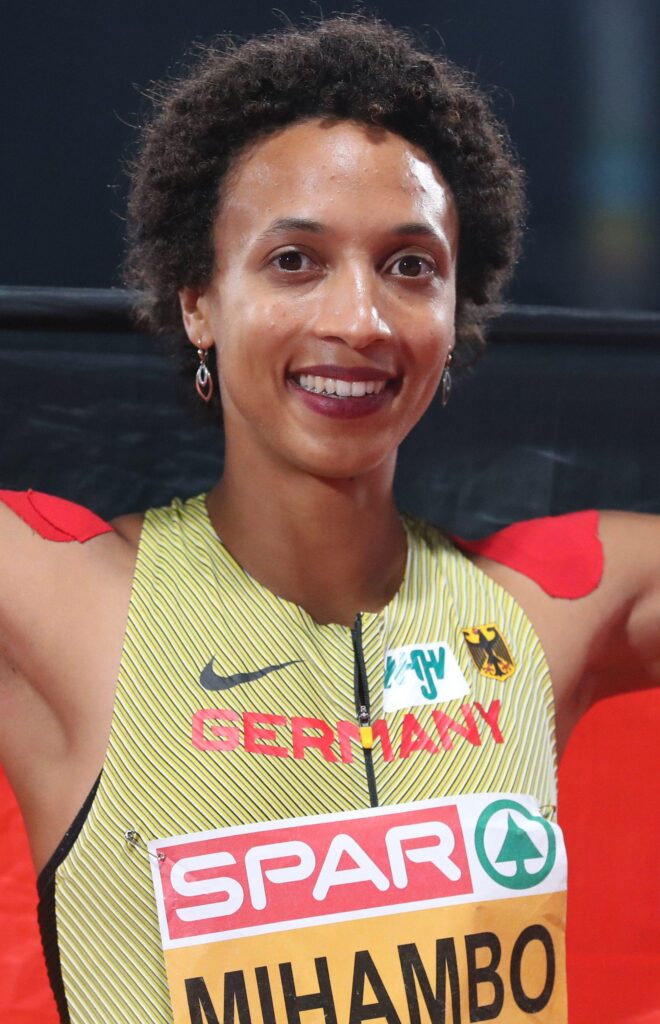As the use of genetic testing in sports gains momentum, the athletics community remains divided over its implications and effectiveness. In a recent discussion highlighted by the Qatar Tribune, attention has turned to “Mihambo,” a case that underscores the persistent uncertainties surrounding gene tests in athletics. Despite advances in biotechnology promising to unlock new potentials for athlete development and performance optimization, experts and governing bodies continue to grapple with ethical, scientific, and regulatory questions. This article explores the ongoing debate, examining why gene testing remains a contentious and unresolved issue within the world of competitive athletics.
Mihambo Addresses Controversies Surrounding Athletics Gene Testing
In light of recent debates, Mihambo emphasized the complexity surrounding the use of genetic testing in athletics. While gene tests offer promising insights into an athlete’s potential and predispositions, many unresolved issues remain. Concerns about privacy, ethical boundaries, and the accuracy of correlating specific genes to performance continue to spark controversy. Mihambo highlighted that such tests should not be seen as definitive predictors but rather as supplementary tools in athlete development.
She also pointed out key challenges still facing the athletic community regarding genetics:
- Data confidentiality: How to protect sensitive genetic information from misuse.
- Fair competition: Ensuring tests don’t lead to genetic discrimination or unfair advantages.
- Scientific limitations: The need for more comprehensive research to establish clear connections between genetics and performance.
| Aspect | Current Status | Future Outlook |
|---|---|---|
| Privacy | Under debate | Stronger regulations expected |
| Scientific Evidence | Inconclusive | Ongoing studies |
| Ethical Guidelines | Developing | Standardization needed |
Experts Highlight Scientific and Ethical Challenges in Genetic Screening
Recent discussions among leading geneticists and bioethicists underscore the complexity surrounding the use of genetic screening in athletics. While advancements in DNA testing promise insights into an individual’s potential for certain physical traits such as speed, strength, and endurance, experts caution that the scientific foundations remain inconclusive. Many gene variants linked to athletic performance are influenced by multiple environmental factors, lifestyle choices, and gene interactions, making it difficult to predict outcomes solely based on genetic data.
Beyond scientific uncertainties, ethical dilemmas loom large. Critics emphasize concerns related to privacy, potential discrimination, and the psychological impact on athletes subjected to genetic profiling. Parameters raised by experts include:
- Consent and data protection: Ensuring athletes, especially minors, fully understand the implications of genetic testing.
- Fairness in competition: Avoiding genetic determinism that might give unfair advantages or reinforce stereotypes.
- Societal implications: Preventing misuse of genetic information beyond sports, such as in employment or insurance decisions.
| Challenge | Implication | Proposed Action |
|---|---|---|
| Polygenic Nature | Genes interact; single markers insufficient | Develop comprehensive testing frameworks |
| Confidentiality Risks | Potential data leaks and misuse | Implement robust data security protocols |
| Ethical Consent | Informed agreement complexities | Establish strict consent guidelines |
Implications for Fair Play and Athlete Selection in International Competitions
As the debate over gene testing for athletes intensifies, questions about fairness continue to emerge. The prospect of using genetic information to determine eligibility or to predict performance challenges the foundations of equal competition. Critics argue that relying on genetic profiles could marginalize athletes from diverse backgrounds or those who don’t meet certain genetic benchmarks, inadvertently creating a new form of exclusion. Moreover, the accuracy and ethical implications of these tests remain unsettled, raising concerns about potential misuse and privacy violations.
- Potential bias in athlete selection criteria
- Privacy and consent issues regarding genetic data
- Impact on diversity and inclusivity in sports
- Regulatory challenges for international sporting bodies
| Key Concern | Possible Impact |
|---|---|
| Genetic Discrimination | Reduced opportunities for non-“ideal” profiles |
| Data Privacy | Risk of unauthorized data sharing |
| Competitive Integrity | Questions over fairness and manipulation |
Calls for Regulatory Framework and Enhanced Transparency in Gene Testing Practices
Amid ongoing debates, experts and athletes alike emphasize the urgent need for a comprehensive, standardized framework governing gene testing in athletics. The current landscape is marred by inconsistent regulations across countries and organizations, raising concerns about fairness, privacy, and the potential misuse of genetic data. Calls for transparent protocols aim to ensure that tests are conducted ethically and that athletes fully understand the implications of their results.
Stakeholders are advocating for several key measures, including:
- Independent oversight bodies to monitor gene testing methodologies and data handling
- Clear guidelines on consent and data protection to safeguard athletes’ rights
- Standardized reporting formats to improve transparency and comparability
- Education initiatives to inform athletes about the limitations and implications of gene testing
| Key Issue | Proposed Solution |
|---|---|
| Data Privacy | Strict consent protocols |
| Testing Accuracy | Standardized test procedures |
| Equity | Uniform regulations across federations |
| Transparency | Mandatory public reporting |
Key Takeaways
As the debate over the role of genetics in athletic performance continues to evolve, the discussions sparked by Mihambo’s case underscore the complexities surrounding gene testing in sports. While advances in science offer new possibilities for understanding human potential, ethical questions and regulatory challenges remain unresolved. Qatar Tribune will continue to monitor developments in this field, bringing readers the latest insights into how genetics may shape the future of athletics.





